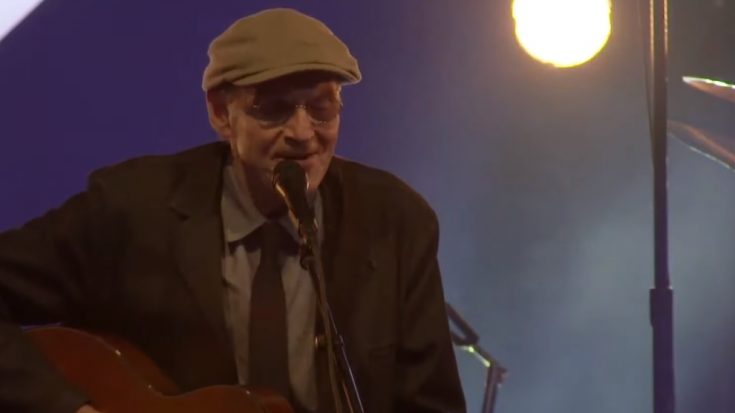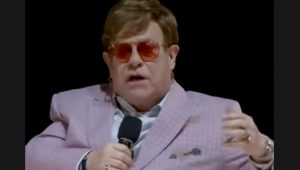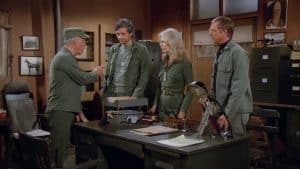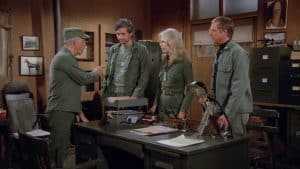James Taylor Feels Guilty About Giving John Lennon Opiates

James Taylor live in 2020 - Kyle Davis / Youtube
John Lennon, the music legend whose innovative spirit continues to inspire generations, battled a dark secret: heroin addiction. While experimentation with mind-altering substances wasn’t uncommon during the counterculture movement of the 60s and early 70s, Lennon’s dependence went far beyond artistic exploration.
This dark period, reaching its peak during the recording of Let It Be, saw Lennon retreating deeper into himself creatively.
Explanations for this withdrawal varied. According to Lennon himself, recounted by Jann S. Wenner, the culprit was heroin. However, he downplayed the severity, claiming they “sniffed a little” when in pain. While public scrutiny undoubtedly fueled their isolation, with fans blaming Yoko Ono for the Beatles’ break-up, a surprising revelation emerged.
In a recent interview, James Taylor, the esteemed American singer-songwriter, confessed a surprising role in this dark chapter of Lennon’s life.
From innocent to destructive
The Beatles’ embrace of marijuana during their meteoric rise to fame was no secret. Lennon himself described it as a cultural wave they rode: “We were smoking marijuana for breakfast…nobody could communicate with us because we were just glazed eyes, giggling all the time.” It was a seemingly innocent indulgence, a shared experience with the counterculture of the time.
However, Lennon’s experimentation soon turned darker. As tensions rose within the band, heroin became his drug of choice. This heavier addiction further isolated him from his bandmates, who remained clear of it.
Paul McCartney, Lennon’s songwriting partner, observed the shift reflected in their music: “His songs were taking on more references to heroin…We were disappointed that he was getting into heroin because we didn’t really know how we could help him.”
The lighthearted references to pot and LSD were replaced with harrowing themes, leaving the rest of The Beatles powerless to intervene.
An unexpected encounter
James Taylor’s connection to The Beatles came through a stroke of luck. Peter Asher, brother of McCartney’s then-girlfriend, was impressed by Taylor’s demo and arranged an audition with George Harrison and Paul in early 1968, just after Taylor arrived in London. The timing couldn’t have been more perfect – The Beatles were in the midst of recording the White Album.
Taylor’s performance of “Something” clearly resonated with the band. They were so impressed that they signed him to their label, Apple Records, on the spot, offering to help him record his debut album.
Recalling the experience, Taylor described a mix of nerves and excitement. “I was very nervous,” he admitted, “But I was also, you know, on fire…in my sort of mellow, sensitive way.” The recording sessions became a unique point of intersection for the two acts.
Taylor would often arrive early and sit in on playback sessions for The Beatles’ latest work, offering a firsthand glimpse into their creative process.
Descending into addiction in London
Taylor’s arrival in London during the free-wheeling 1960s presented a double-edged sword. While it was a dream come true for the aspiring musician, it also became a breeding ground for his addiction struggles.
Back home, he had faced restrictions, but in this new, unchaperoned environment, readily available opiates proved too tempting.
Recalling this dark period, Taylor admitted, “I picked up pretty soon after I got here.” One readily available option was Collis Browne’s Chlorodyne, an old-fashioned medication that contained opium.
He described it as a way to “take the edge off,” a chilling euphemism for the drug’s addictive properties. This easy access to mind-altering substances would unfortunately fuel Taylor’s internal battles during his time in London.
A tangled web
Taylor acknowledged the messy situation surrounding his time with The Beatles. He admits, “I was a bad influence…because I gave John opiates.” However, the narrative gets more complex.
While Taylor feels some guilt, it’s important to remember the bigger picture. The Beatles were already experiencing creative tensions that would likely have led to a break-up eventually. While Lennon’s drug use undeniably contributed to the problems, it wasn’t the sole cause.
Furthermore, there’s no evidence Taylor introduced Lennon to heroin. Some sources make this claim, but Taylor himself doesn’t know for sure.
Even if he offered it, Lennon, as an adult, made his own choices. The blame for Lennon’s struggles lies not with Taylor, but with the pressures he faced – media scrutiny, fan expectations, and internal band dynamics.











